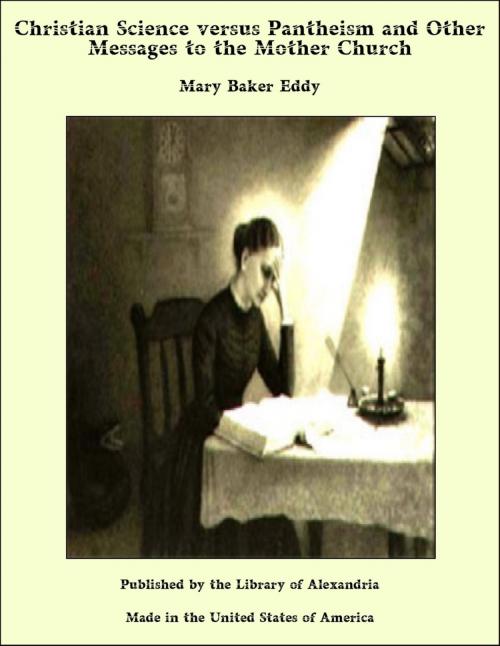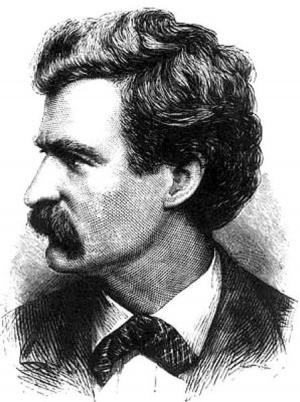Christian Science versus Pantheism and Other Messages to the Mother Church
Nonfiction, Religion & Spirituality, New Age, History, Fiction & Literature| Author: | Mary Baker Eddy | ISBN: | 9781465614049 |
| Publisher: | Library of Alexandria | Publication: | March 8, 2015 |
| Imprint: | Language: | English |
| Author: | Mary Baker Eddy |
| ISBN: | 9781465614049 |
| Publisher: | Library of Alexandria |
| Publication: | March 8, 2015 |
| Imprint: | |
| Language: | English |
According to Webster the word "pantheism" is derived from two Greek words meaning "all" and "god." Webster's derivation of the English word "pantheism" is most suggestive. His uncapitalized word "god" gives the meaning of pantheism as a human opinion of "gods many," or mind in matter. "The doctrine that the universe, conceived of as a whole, is God; that there is no God but the combined forces and laws which are manifested in the existing universe." The Standard Dictionary has it that pantheism is the doctrine of the deification of natural causes, conceived as one personified nature, to which the religious sentiment is directed. Pan is a Greek prefix, but it might stand, in the term pantheism, for the mythological deity of that name; and theism for a belief concerning Deity in theology. However, Pan in imagery is preferable to pantheism in theology. The mythical deity may please the fancy, while pantheism suits not at all the Christian sense of religion. Pan, as a deity, is supposed to preside over sylvan solitude, and is a horned and hoofed animal, half goat and half man, that poorly presents the poetical phase of the genii of forests. My sense of nature's rich glooms is, that loneness lacks but one charm to make it half divine -- a friend, with whom to whisper, "Solitude is sweet." Certain moods of mind find an indefinable pleasure in stillness, soft, silent as the storm's sudden hush; for nature's stillness is voiced with a hum of harmony, the gentle murmur of early morn, the evening's closing vespers, and lyre of bird and brooklet.
According to Webster the word "pantheism" is derived from two Greek words meaning "all" and "god." Webster's derivation of the English word "pantheism" is most suggestive. His uncapitalized word "god" gives the meaning of pantheism as a human opinion of "gods many," or mind in matter. "The doctrine that the universe, conceived of as a whole, is God; that there is no God but the combined forces and laws which are manifested in the existing universe." The Standard Dictionary has it that pantheism is the doctrine of the deification of natural causes, conceived as one personified nature, to which the religious sentiment is directed. Pan is a Greek prefix, but it might stand, in the term pantheism, for the mythological deity of that name; and theism for a belief concerning Deity in theology. However, Pan in imagery is preferable to pantheism in theology. The mythical deity may please the fancy, while pantheism suits not at all the Christian sense of religion. Pan, as a deity, is supposed to preside over sylvan solitude, and is a horned and hoofed animal, half goat and half man, that poorly presents the poetical phase of the genii of forests. My sense of nature's rich glooms is, that loneness lacks but one charm to make it half divine -- a friend, with whom to whisper, "Solitude is sweet." Certain moods of mind find an indefinable pleasure in stillness, soft, silent as the storm's sudden hush; for nature's stillness is voiced with a hum of harmony, the gentle murmur of early morn, the evening's closing vespers, and lyre of bird and brooklet.















